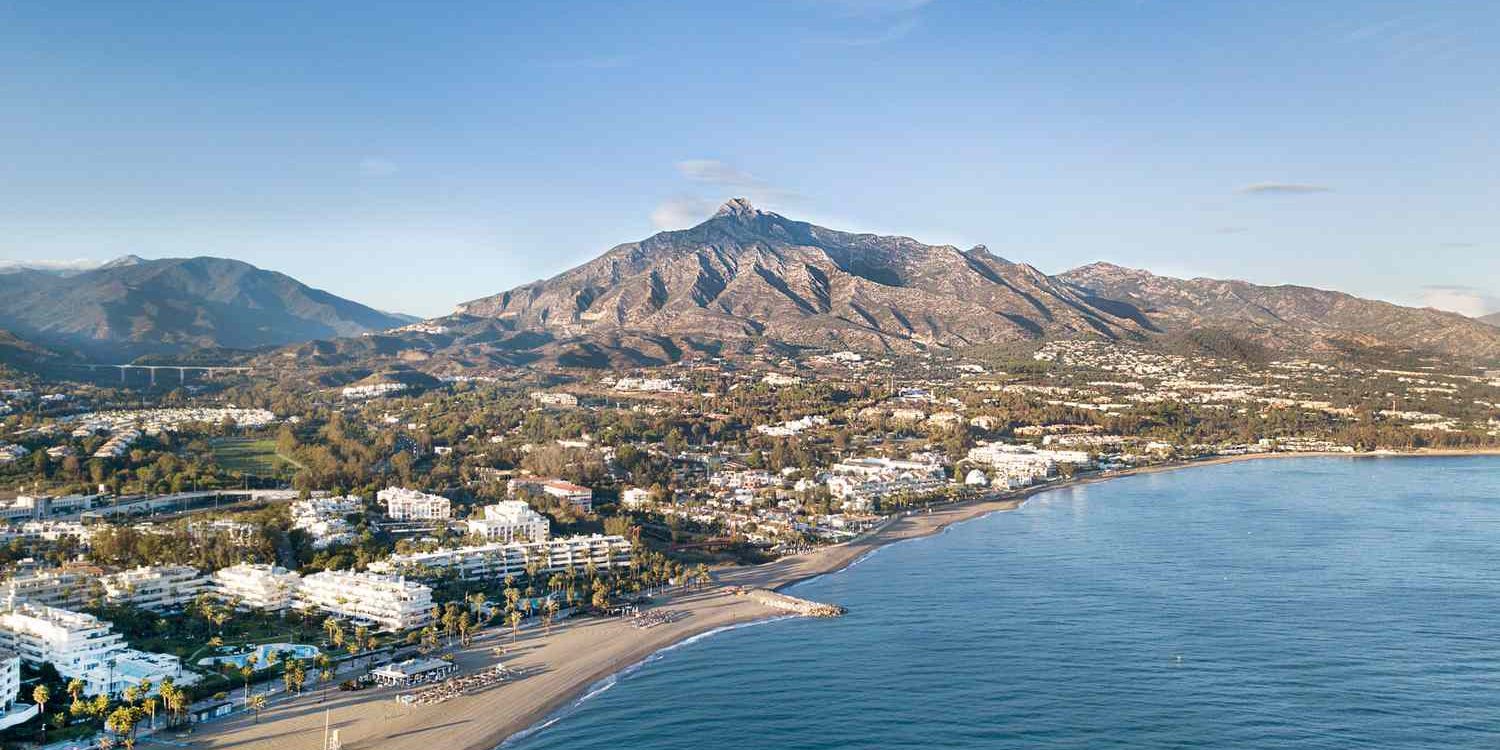Retiring in Marbella, Spain.
People from cold and wet countries often fantasize about retiring to sunny Spain. International Living Magazine annually compiles a worldwide retirement index that ranks the best countries to retire based on various criteria, including but not limited to the quality of local housing, the availability of visas, the quality of local medical care, and the cost of living.
It’s no wonder Spain is consistently ranked among the best places to retire in the world; the country has a great temperature all year round, a healthy Mediterranean diet, a wealth of cultural attractions, and a laid-back way of life.
Over many decades, Marbella, in particular, has emerged as the top choice for Spaniards and non-Spaniards as the best place to retire on the Spanish peninsula. This shore attracts retirees from all over the world, including Russia, the Netherlands, Belgium, France, and the United Kingdom. There has been a notable uptick in the number of Americans choosing the Marbella region as their retirement home.
Why Should You Retire in Marbella?
Why is Marbella such a good choice? Many individuals opt to retire in Marbella because of the pleasant weather and abundant sunlight that can be found there throughout the year. Sunlight has an almost instantaneous, beneficial effect on mood and health. The weather also makes outdoor activities, such as strolls along the beach or spending the day basking in the sun with a good book, possible year-round.
People often choose to spend their golden years in Marbella because of the pleasant climate and the kind locals. Unlike the people of many other European nations, the locals here are recognized for being chill, stress-free, friendly, and putting a priority on their social lives. The practice of taking a nap around 14:00-17:00 is very popular among foreign residents. All agreed that eating a Mediterranean diet and plenty of fresh vegetables had tremendous beneficial effects on health and mood. Marbella takes great pride in its cuisine, and many visitors come to Spain just to sample its fare.
Inviting a wide range of nationalities, Marbella is a melting pot of cultures. Marbella and its residents have assimilated the many varied languages, cultures, and ethnicities that have made the city a popular relocation choice. Despite the fact that many individuals relocate to Spain, they may keep a bit of home with them thanks to the many foreigners who have created supermarkets, stores, and other facilities that supply fresh produce and items from their nation.
The province of Málaga is home to the Costa del Sol, which has more than 150 kilometers (93 miles) of coastline and attracts many individuals who want to live near the water. Given the year-round warmth and lively vibes, it might be difficult to resist the beach. One of the main reasons people choose to retire in the Marbella region is that it is a great spot to invest in real estate. Spain’s real estate market is one of the most dynamic in Europe, and the country’s cheap cost of living makes it an attractive destination for homebuyers with a wide range of financial and lifestyle objectives. Finally, the increased wealth that comes from having access to such valuable real estate translates into an improved standard of living.
Which retirees are eligible for a move to Marbella?
Retirement in Marbella is open to everyone who wants to do so. However, due to Spain’s membership in the EU and Schengen Area, citizens of the EU and EEA are able to relocate to and retire in Marbella without a visa or a residence permit.
Retirement in Marbella requires a visa for non-EU citizens. Typically, individuals apply for and get a Retirement Visa, which permits them to lawfully reside in and enjoy their retirement in a foreign nation. Retirees who want to relocate to Marbella may choose between two different retirement visas. Many well-off retirees choose Spain because of its attractive Golden Visa program. In case you’re interested in learning more about the Golden Visa, we have a detailed post about it here on our site.
Non-EU nationals who can demonstrate that they can support themselves financially in Spain without working are eligible for a non-lucrative visa. This visa is the most common option for those who want to retire in Spain with their families, as long as they can prove that they have the funds to support their stay in the country. If you’ve been living in Spain for 5 years straight, you may apply for a Spanish Residency Permit, provided you’ve spent at least 6 months there each year for the last 5 years.
Proof of an annual income of at least €27,115.20 is required to apply for a Retirement Visa in Spain. If you can’t do that, you’ll need to show that you make at least €2,259.53 every month. Additional cost of €6,778 per family member if you decide to bring them along.
How do I apply for a retirement visa in Marbella, and what do I need?
Although you should check with your local consulate for a complete list of necessities, you will likely need to provide the following:
- A passport that has more than one year left on its validity date.
- Two current, color photos taken by a passport photographer.
- Provide evidence of financial stability, such as a bank statement, an affidavit of support, a pension statement or dividend checks.
- You have no criminal record, as shown by official police records. The papers must be authenticated with an Apostille stamp and a certified translation into Spanish.
- You’ll need at least a year’s worth of medical coverage from a private Spanish insurer that’s at least as comprehensive as Spain’s universal healthcare system.
- A physical examination from a licensed physician declaring that you have no communicable diseases, drug dependencies, or other relevant medical conditions.
- Current Tax Return
What will happen to my pension fund?
If you are a citizen of an EU or EFTA nation and are thinking of retiring in a place like Marbella, your insurance payments in those countries may be applied to your Spanish pension, as reported by Expatica.
Upon reaching the pension eligibility age in your country of residence, such as in the instance of Marbella, Spain, where the pension eligibility age is 65 years and 10 months, you will be able to begin collecting your pension payments. The nation from which you depart is responsible for submitting your claim and requesting relevant employment documentation from any foreign countries in which you have worked.
Some nations outside of Europe also have bilateral social security agreements with Spain. Transferring your pension and social security payments may be subject to various regulations in each nation.
And because many retirees from other countries choose to spend their golden years in Marbella, the local government and banks are used to dealing with international pensions. In truth, Marbella is a great place for retirees to live and receive their pension payments from overseas.
Is there an expat pension tax to retire in Marbella?
Pensions in Marbella, as well as the rest of Spain, are subject to a progressive tax rate of 8-40%. Payments into a Spanish pension plan qualify for a tax credit. There are other tax breaks available. Income earned outside of Spain (such as from a foreign pension) is not subject to Spanish taxation for non-residents of Spain. As a non-resident, you are not required to pay taxes on your pension payments that are sent back home.
Are you looking for properties in Marbella?



